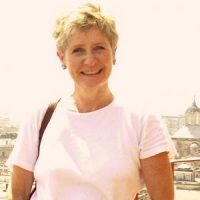November 13, 2018 in Pugh Hall 302 from 11:00am-12:00pm.
Simon Richter is the Class of 1942 Endowed Term Professor and Interim Chair of the Department of Germanic Languages and Literatures at the University of Pennsylvania. Richter is a Professor of Germanic Languages and Literatures and member of the Graduate Groups in Comparative Literature and Religious Studies, fellow of the Institute of Urban Research, and affiliated with the Programs in Cinema Studies, Environmental Humanities, Women’s Studies, and the Penn Water Center. Courses he has recently taught include: “Water Worlds: Cultural Responses to Sea Level Rise and Catastrophic Flooding”; “Writing in Dark Times“; “The German Connection: Hollywood and Berlin”; “Erinnerungsorte/Places of Memory”; and “Weimar Classicism.”
Coastal cities around the world are already contending with the effects of sea level rise. For many, the problems are exacerbated by subsidence. Cities are sinking and seas are rising. Hundreds of millions of people will be affected. Enter the Netherlands. Building on proud traditions of coastal defense, land reclamation, and water management, the Dutch avidly pursue what they call their “international water ambition.” In New York, Miami, Houston, Ho Chi Minh City, Jakarta, Dhaka, and many more, you will find the Dutch government and Dutch engineering and design companies promoting the Dutch approach. Dutch design slogans capture the range of their ambition: Rebuild by Design, Building with Nature, the Blue Revolution, the Floating City, Room for the River. The Dutch are intent on turning problems into opportunities. In this workshop, we will explore the intercultural aspects of the Dutch international water ambition in several case studies.
Watch recording of livestream.
Including discussion with Terry Harpold (English), Angela Lindner (Environmental Engineering Sciences), Chris Silver (College of Design, Construction & Planning), and Les Thiele (Political Science).
Introduction by Barbara Mennel (English and German/LLC; Director, Center for Humanities and the Public Sphere). Moderated by Will Hasty (German/LLC; Codirector, Center for Medieval and Early Modern Studies).
The Global-Cultural Sustainability Symposia are supported by the Waldo W. Neikirk Fund, the University of Florida International Center, the Department of Languages, Literatures, and Cultures, the Center for Medieval and Early Modern Studies, and Imagining Climate Change.

